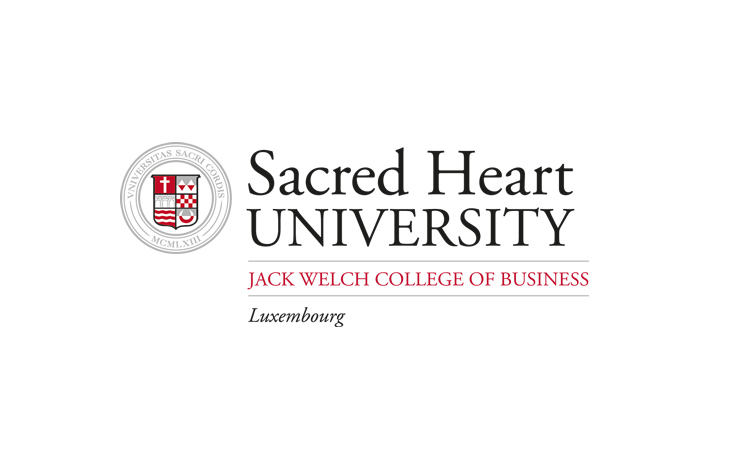
SACRED HEART UNIVERSITY LUXEMBOURG | LUXEMBOURG
- B, 7 Rue Alcide de Gasperi, 2981 Luxembourg
- Visit University Websites
- University Type: Private
- Famous For : Career oriented university




Sacred Heart University Luxembourg is a private institution in Luxembourg City that solely provides an MBA. SHU Luxembourg is the European affiliate of Fairfield University’s Jack Welch College of Business (CT). For over 25 years, the institution has been delivering MBA graduate-level programs adapted to the requirements of working people in Luxembourg. It offers a full-time MBA program with an internship, a part-time MBA program, part-time diploma programs, and a range of one-week seminars. We tell students about Luxembourg universities, Luxembourg student visas, MSc in Luxembourg, MBA in Luxembourg, Masters program in Luxembourg, study visa checklist for Luxembourg, Schengen visa procedure, Schengen visa checklist, and so on.
By design, the SHU MBA Program is small.
einsteineruploaded with. Because of the small class size, students have a say in fine-tuning and improving the MBA Program. Through small group conversations, students learn to know their classmates. The needs of students are fulfilled immediately and effectively. Since 2016, every understudy has had a preferred and selective relationship with a coach. Luxembourg student visa from Bangladesh is provided by Shopnotour for Students.
Find an MBA culture that empowers.
Connect with a varied and experienced class.
You could be surprised by the personal attention.
Prospects for a Future Career
Management, Accounting, Finance, and Marketing make up the whole faculty.
Einstein is uploading up to get together with.
Valid travel documentation (Passport)
Curriculum Vitae (CV) (Detail Address, Phone Number, Email & Skype ID)
Two reliable references with email and phone numbers
SSC and HSC results with 75% mark Degree results with 75% marks English Proficiency Certificate (IELTS 6.5 or above or TOEFL 550 or above)
Work Experience Statement of Purpose/Motivational Letter (If Available)
Contact Us
Shopno Tour
01958553912-4
Studying abroad offers several benefits, including exposure to new cultures and ways of thinking, the opportunity to learn a new language, the chance to gain international experience and make global connections, and the potential to boost your career prospects.
The admission requirements for studying abroad vary depending on the country and the institution you are applying to. Generally, you will need to provide academic transcripts, proof of English language proficiency (such as TOEFL or IELTS scores), letters of recommendation, and a personal statement or essay.
When choosing a study abroad program, consider factors such as the location, academic reputation of the institution, program offerings, cost, and support services available to international students.
The process for applying for a student visa varies depending on the country you are applying to. Generally, you will need to provide proof of admission to a recognized educational institution, evidence of financial support, and a valid passport. You may also need to attend an interview at the consulate or embassy.
Studying abroad can be expensive, but there are several options for financing your education, including scholarships, grants, student loans, and part-time work. It is important to research and apply for funding opportunities early in the application process.
To prepare for studying abroad, make sure you have all the necessary documentation, including a valid passport and student visa. Research the culture and customs of the country you will be visiting, and consider learning some of the local language. Connect with other students who will be studying abroad to build a support network, and make sure you have sufficient funds to cover your living expenses.
The process for finding housing while studying abroad varies depending on the country and the institution you are attending. Many institutions offer on-campus housing options, while others may provide assistance in finding off-campus accommodations. It is important to research your options and make arrangements well in advance of your departure.
Many institutions provide support services to international students, such as language classes, cultural activities, academic advising, and counseling services. It is important to take advantage of these resources to help you adjust to your new environment and succeed academically.
